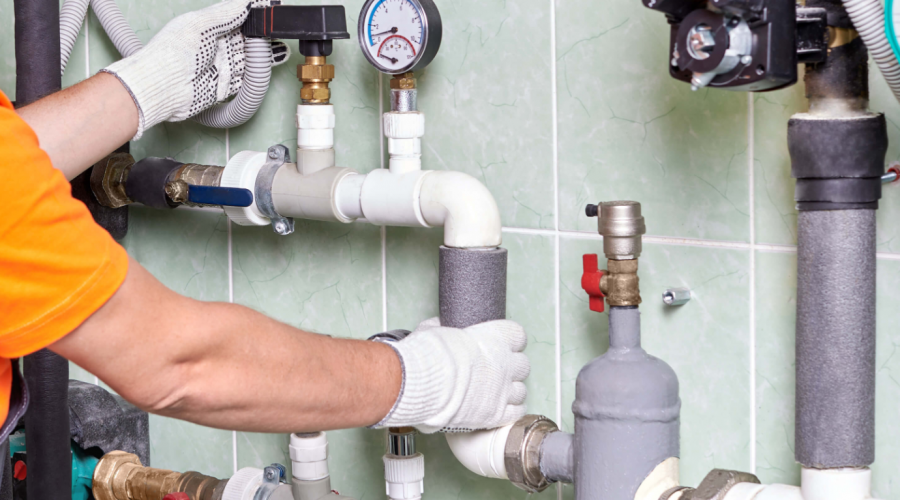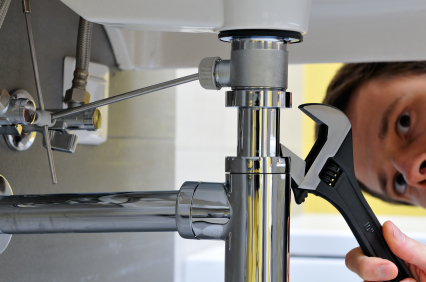Handling Emergency Plumbing Issues: Immediate Solutions Until Specialist Help Arrives
Handling Emergency Plumbing Issues: Immediate Solutions Until Specialist Help Arrives
Blog Article
Presented here further down you can discover some really good facts involving Plumbing Emergencies: Tips on What To Do Before.

Plumbing emergencies can strike at any time, creating anxiety and prospective damage to your home. Whether it's a ruptured pipe, a clogged drainpipe, or a leaking faucet, recognizing exactly how to manage the scenario up until a professional plumbing professional shows up can save you from more issues. This short article provides crucial emergency pipes ideas to help you minimize damage and regain control throughout a pipes crisis.
Shut off the Water System
The initial step in any pipes emergency situation is to shut off the water. For local issues, such as a dripping tap or toilet, switch off the shutoff near the fixture. When it comes to a significant leak or ruptured pipe, locate your home's major water shut-off valve and turn it off promptly. Understanding the location of these shutoffs in advance can conserve valuable time throughout an emergency.
Address Small Leakages with Short-term Solutions
Little leaks can swiftly become substantial issues if left unchecked. Utilize these temporary solutions until expert help gets here:
While these solutions aren't permanent, they can assist lessen water loss and damages.
Unclog Drains Safely
A stopped up drainpipe can be a frustrating and messy problem. Below's just how to tackle it:
If these techniques do not function, stay clear of making use of too much pressure, as it might aggravate the clog.
Take Care Of Overflowing Toilets
An overflowing toilet can trigger prompt disorder. Here's what you ought to do:
Shut down Your Hot Water Heater
In particular emergency situations, such as a burst pipe, it's wise to shut off your hot water heater. This protects against overheating or damage to the unit when water quits moving. Shut off the power supply to the water heater (electric or gas) and allow it cool off to prevent potential hazards.
Momentarily Quit a Burst Pipe
A burst pipe can bring about considerable water damage in mins. To alleviate the problem:
Call an expert plumbing instantly to address the trouble completely.
Deal With Frozen Pipeline Carefully
In cooler environments, frozen pipes are an usual emergency situation. If you think a frozen pipeline:
Prevent More Damage
Taking fast activity to minimize damage can conserve you time and money in the long run. Below's how:
. Have an Emergency Plumbing Package
Prepare a basic plumbing emergency situation package to deal with small concerns effectively. Your set needs to include:
Having these tools available can make a considerable distinction in your capacity to take care of emergencies.
Know When to Call an Expert.
While quick fixes can aid temporarily, specific pipes issues need prompt professional interest. Call a plumbing professional if:.
Without delay contacting an expert makes sure the concern is resolved correctly and avoids additional difficulties.
Verdict.
Pipes emergency situations can be frustrating, yet with the appropriate expertise and devices, you can take care of the scenario properly till aid gets here. By switching off the water, resolving tiny leakages, and making use of short-lived repairs, you can reduce damage and keep your home safe. Remember, these tips are temporary solutions; constantly get in touch with a qualified plumbing professional to manage the source of the issue. Preparation and fast thinking are your best allies in any pipes emergency situation.
Expert Tips for Emergency Plumbing Repairs
Plumbing emergencies can be incredibly stressful and inconvenient. Whether it’s a burst pipe, a clogged drain, or a leaky faucet, these common plumbing emergencies need immediate attention to prevent further damage to your home. But before you panic, it’s important to understand the basics of plumbing repairs and the steps you can take to address these emergencies. In this article, we will share some expert tips to help you navigate through these situations and minimize potential water damage.
Identifying Common Plumbing Emergencies
Leaky pipes and faucets Clogged drains and toilets Burst pipes Low water pressure Water heater problems Essential Tools for Plumbing Repairs
Plunger: Useful for unclogging toilets and drains Adjustable wrench: Needed for tightening or loosening nuts and bolts Pipe wrench: Ideal for gripping and turning pipes Tape measure: Necessary for accurate pipe measurements Plumber’s tape: Helps create watertight seals Understanding Emergency Plumbing Services
Emergency plumbing services are designed to provide immediate assistance for unexpected plumbing issues that can cause significant damage to your home, business, or health. These services are typically available 24/7 and are staffed by experienced plumbers who can quickly diagnose and repair a wide range of plumbing problems.
When a plumbing emergency strikes, time is of the essence. Whether it’s a burst pipe flooding your basement or a gas leak posing a serious risk, emergency plumbing services ensure that help is just a phone call away. These professionals are equipped with the tools and expertise to handle any situation, minimizing damage and restoring your plumbing system to proper working order.
What Constitutes a Plumbing Emergency?
Burst pipes or water supply lines: These can cause extensive water damage and need immediate repair to prevent flooding. Gas leaks or suspected gas leaks: Gas leaks are extremely dangerous and require prompt attention to avoid potential explosions or health hazards. Sewer backups or overflows: These can lead to unsanitary conditions and significant property damage. Clogged drains or toilets causing water to overflow: Overflowing water can damage floors, walls, and other structures. Leaks or water damage causing structural damage: Persistent leaks can weaken the structural integrity of your home or business. No hot water or heating: A lack of hot water can be more than an inconvenience, especially in colder months. Common Causes of Plumbing Emergencies
Aging or corroded pipes: Over time, pipes can deteriorate, leading to leaks or bursts. Improperly installed or maintained plumbing fixtures: Faulty installations or lack of maintenance can result in unexpected failures. Tree roots or other debris infiltrating your sewer line: Roots can grow into pipes, causing blockages and backups. Frozen pipes or water supply lines: In colder climates, pipes can freeze and burst, leading to significant water damage. High water pressure or sudden changes in water pressure: Excessive pressure can strain pipes and fixtures, causing them to fail. Natural disasters such as floods or earthquakes: These events can disrupt your plumbing system and cause severe damage. Steps to Minimize Water Damage
Locate the water shut-off valve: Knowing where the valve is can help you quickly cut off the water supply to the affected area. Turn off the water heater: If there’s a risk of water coming into contact with the heating element, make sure to turn off the water heater to avoid potential accidents. Open faucets and drain pipes: By opening faucets and drain pipes, you can relieve pressure and empty any standing water. Collect and contain water: Use towels, buckets, or bins to collect water and prevent it from spreading to other areas of your home. https://leecountyplumbingandwellservice.com/expert-tips-for-emergency-plumbing-repairs/

Do you appreciate more info about What to Do During a Plumbing Emergency? Post a review down the page. We'd be delighted to listen to your feelings about this content. In hopes that you come back again before long. Feel free to take the time to distribute this write-up if you enjoyed reading it. Thanks a lot for being here. Kindly check up our site back soon.
Book Services Report this page